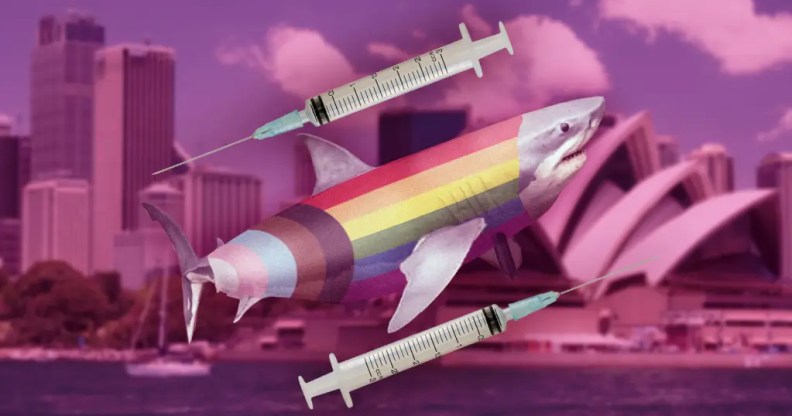Mpox vaccination encouraged ahead of Sydney WorldPride

People heading to Sydney WorldPride are being encouraged to get vaccinated against mpox (Credit: Sydney WorldPride/Getty Images)
People heading to Australia for WorldPride are being urged to get vaccinated against mpox (formerly known as monkeypox) before they fly.
The event is being held in Sydney from Saturday (18 February) until 5 March, combining with the city’s 45th Gay and Lesbian Mardi Gras.
More than 500,000 people are expected to join in the festivities, including overseas visitors, who a local health expert has deemed the most likely to spread the virus.
Australia has recorded no mpox cases this year, after 144 were reported in the country last year during the global outbreak.
That outbreak happened after the virus started rapidly spreading in Europe and North America, having previously only been endemic in parts of west and central Africa.
Dr Vincent Cornelisse, a sexual-health physician and senior lecturer at Sydney’s Kirby Institute, told ABC News most cases being reported now were in the United States and South America.
“It’s quite likely we’ll see visitors from both of these places come to WorldPride,” he said. “There’s a real possibility a few of these people night have undiagnosed mpox infections.”
He said it made sense to take precautions against the virus but added that it was unlikely Australia would see a major outbreak.
The country’s health minister, Mark Butler, has also encouraged people to get vaccinated, partly for the sake of Australia’s rural populations.
“We know uptake in country areas for the vaccines lags behind our big cities, and that many people living in rural and regional areas will travel to Sydney to celebrate WorldPride,” he wrote in an opinion piece in the Star Observer.
People will also be travelling from countries with low numbers of people fully vaccinated against the infection, such as New Zealand, which only secured supplies of the vaccine last month.
The minimum 28-day window between first and second jabs means very few people from the country would be able to go to WorldPride having had both. Doses are seen as being most effective about two weeks after vaccination.
Cornelisse said one dose would offer “a pretty decent amount of protection” but still urged those who were eligible for their second jab to get it.
Waning concern over mpox
As the number of cases have decreased around the world, so too have the levels of concern.
In the United Kingdom, the UK Health Security Agency stopped publicly publishing mpox data after 20 December, “due to low case numbers”.
The United States did not renew the classification of the virus as a public-health emergency when it expired last month and Ireland is shutting down its targeted vaccination programme at the end of this month.
University of New South Wales social and behavioural scientist Dr James MacGibbon told ABC News that people had a “very high willingness to receive a vaccine”.
However, he said those less concerned about mpox were less likely willing to get a jab.
“Case numbers globally are a lot lower than they were last year, so some people may not perceive themselves to be at any risk,” he warned.
He was echoed by Cornelisse, who said: “[Waning concern is] entirely understandable given that we haven’t seen any new cases in Australia since November, but as I always remind people… it hasn’t gone away globally.”
How did this story make you feel?

